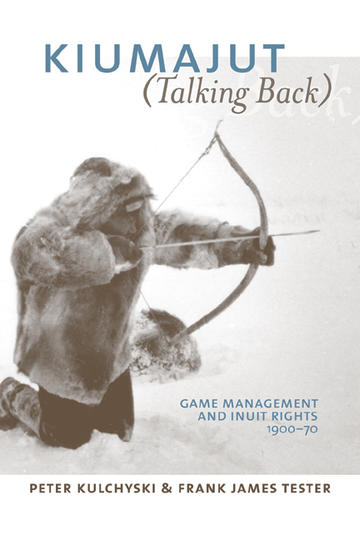About BC Books Online
BC Books Online was created for anyone interested in BC-published books, and with librarians especially in mind. We'd like to make it easy for library staff to learn about books from BC publishers - both new releases and backlist titles - so you can inform your patrons and keep your collections up to date.
Our site features print books and ebooks - both new releases and backlist titles - all of which are available to order through regular trade channels. Browse our subject categories to find books of interest or create and export lists by category to cross-reference with your library's current collection.
A quick tip: When reviewing the "Browse by Category" listings, please note that these are based on standardized BISAC Subject Codes supplied by the books' publishers. You will find additional selections, grouped by theme or region, in our "BC Reading Lists."
Kiumajut [Talking Back]: Game Management and Inuit Rights 1900-70 examines Inuit relations with the Canadian state, with a particular focus on two interrelated issues. The first is how a deeply flawed set of scientific practices for counting animal populations led policymakers to develop policies and laws intended to curtail the activities of Inuit hunters. Animal management informed by this knowledge became a justification for attempts to educate and, ultimately, to regulate Inuit hunters. The second issue is Inuit responses to the emerging regime of government intervention. The authors look closely at resulting court cases and rulings, as well as Inuit petitions. The activities of the first Inuit community council are also examined in exploring how Inuit began to “talk back” to the Canadian state.
Peter Kulchyski is a professor in the Department of Native Studies at the University of Manitoba, co-author with Frank Tester of Tammarniit [Mistakes]: Inuit Relocation in the Eastern Arctic 1939-63, and author of Like the Sound of a Drum: Aboriginal Cultural Politics in Denendeh and Nunavut. Frank James Tester is a professor in the School of Social Work at the University of British Columbia and is the co-author of Tammarniit [Mistakes] and co-editor of Critical Choices: Turbulent Times.
This book is a rich story, weaving together the elements of policy and people. […] The case study approach and choice of the Inuit is of particular value in that it clearly identifies the limits of “objective” science and makes the case for what is now accepted as the importance of traditional knowledge. […] Though this book is not intended as a cautionary tale for current policy makers, it will be of interest to academics, students and policymakers alike as it sheds light on the challenges and conflicts ever-present in regulating Aboriginal people.




